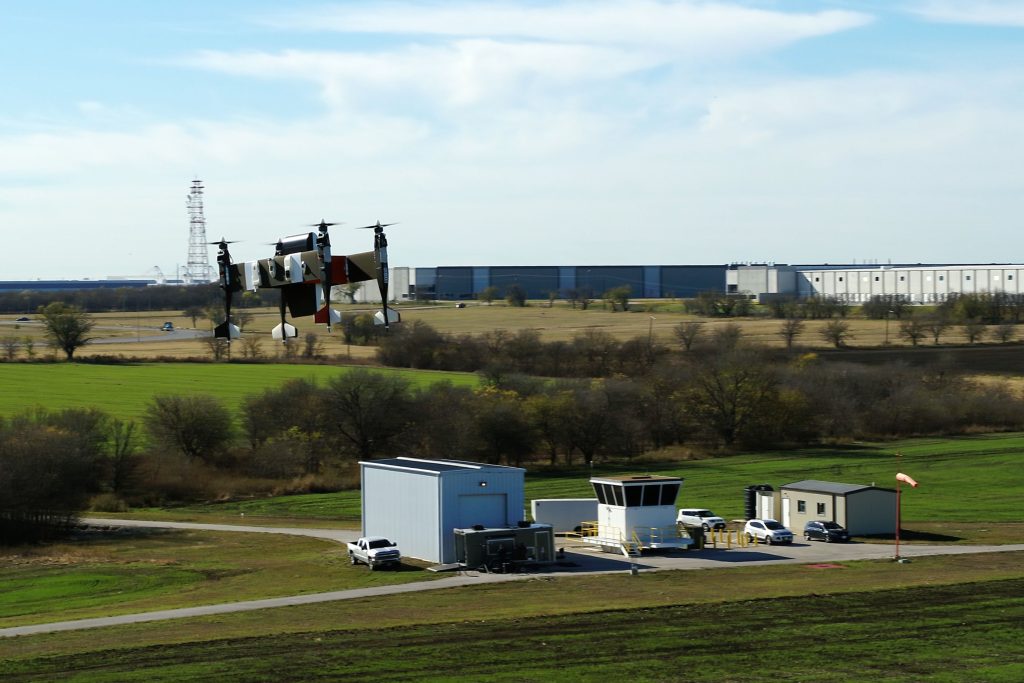Flight test center in Dallas-Fort Worth Mobility Innovation Zone (MIZ) can add value, by providing a large-scale test and development environment
For now, flight testing of eVTOL aircraft and other new aviation technologies is largely being conducted in out-of-the-way locations, but those intended for urban operations will need to prove themselves in something closer to a real-world environment before fully certified, commercial operations can begin and there is community acceptance. This is where real estate developer Hillwood believes its flight test center in its Dallas-Fort Worth Mobility Innovation Zone (MIZ) can add value, by providing a large-scale test and development environment. Unlike anywhere else in the nation, the MIZ provides partner organizations and the scale, infrastructure, and environment for the commercialization of emerging technologies in air and surface mobility.
Two years ago, Hillwood decided to seek a footprint in advanced air mobility as it reviewed its strategic objectives. “Our goal is to help advance mobility innovation by offering real estate to visionaries like aircraft manufacturers and operators to conduct flight testing at our AllianceTexas Flight Test Center on the north side of Fort Worth Alliance Airport,” Christopher Ash, senior vice president for aviation business development, told FutureFlight. “You can test uncrewed and eVTOL platforms in the desert, but that’s not where they will operate. They need to be integrated into complex airspace, and we have the perfect environment for testing, scaling, and ultimately commercializing these products.”
Last year, drone delivery pioneer Wing started operating flights in communities around Fort Worth Alliance Airport, such as Little Elm and Frisco. With the FAA’s blessing, its uncrewed aircraft are able to deliver items such as prescription medications to homes.
Hillwood’s connection with aviation has deep roots. Back in 1982, company founder Ross Perot, Jr., flew around the world in a Bell 206L-1 Long Ranger helicopter. The rotorcraft group, Bell, is based close by and it operates in the AAM sector; for example, it is developing the Autonomous Pod Transport (APT) vehicle, which it has been flight testing in the MIZ alongside autonomous trucking and freight logistics companies.
Bell’s APT-70 vehicle has also conducted test operations in the nearby Pecan Square residential development that is part of Hillwood’s AllianceTexas development. Hillwood has been pleasantly surprised by the favorable response to these flights by local residents.
According to Ash, local and state officials in north Texas are positively inclined towards new aviation ventures and have displayed a willingness to embrace autonomous flight operations. More than 500 companies are based at AllianceTexas and many of these are in the logistics business with potential synergies with uncrewed aircraft operations.
When Uber was planning its now-abandoned Elevate eVTOL flight booking platform, the ride-hailing group identified the wider Dallas-Fort Worth area as a likely early adopter. Ash shares that assessment, pointing to the benefits that urban air mobility services could bring to communities across the region.
“There are clearly benefits, including for outlying areas, and vertiports [for eVTOL flights] will become more common here as people become more comfortable and trusting of the technology,” he said. “Safety is top of mind for us and our partners.”
Last month, the MIZ was recognized as the Top Transportation Innovator by local media group D CEO and Dallas Innovates.
